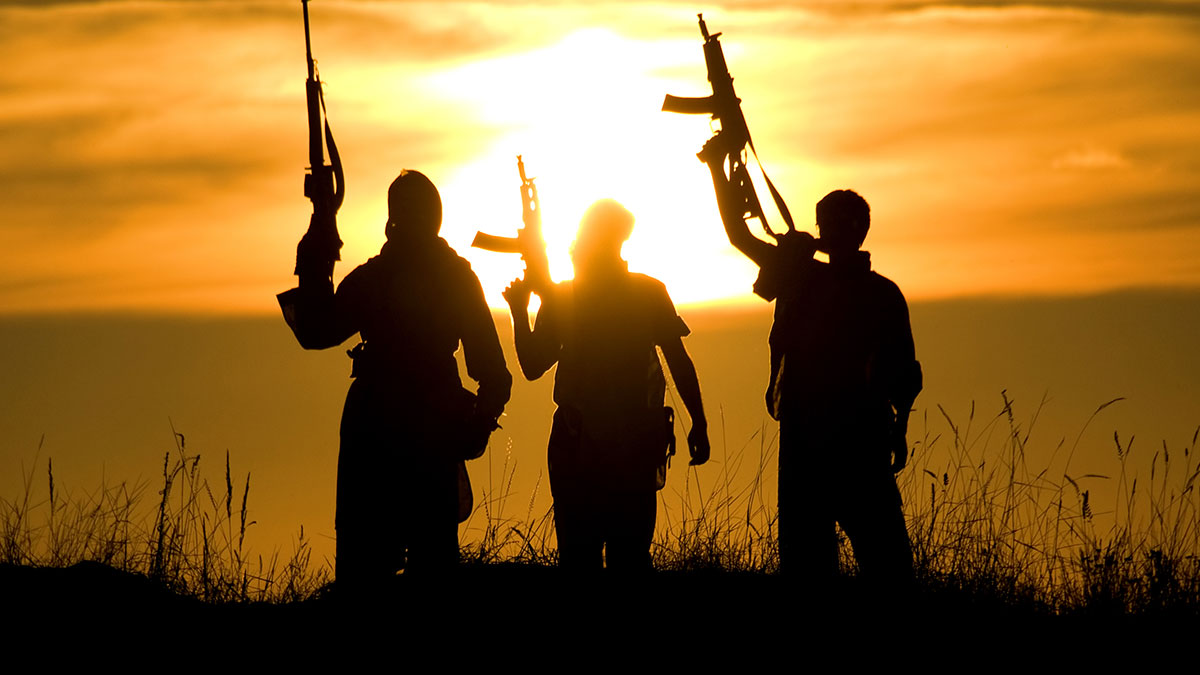It was six years ago, in early 2014, that I was praying earnestly for my son’s safety—and for God’s leading—in the role he was going to undertake as a Fijian peacekeeper in the Middle East.
He was 34 years old and married with three children (a fourth one was on its way), when he left with a group of Fijian soldiers in early July for a tour of duty in the Golan Heights.
Not long after the group had left, we received news that a group of 45 Fijian male peacekeepers had been taken captive by the Syrian Al-Nusra Front to an unidentified location in Syria. No names of the 45 men were released but the news brought me much anxiety and uncertainty. My strength was solely in the fact that I had been praying earnestly for my son before he left. At the same time, I was prompted, I believe by the Holy Spirit, to assume a realistic position on the matter, should the unthinkable happen. I found comfort from His Word in Jeremiah 29:11 which says, “‘For I know the thoughts that I think toward you,’ says the Lord, ‘thoughts of peace, and not of evil, to give you an expected end.’”
A day after the news broke of the capture, my son’s wife rang me. Crying, she informed me that my son was one of the 45 men, and the leader of the group. My immediate words to her, for which I was thankful to God, were: “Don’t worry. God has allowed this to happen, and He has done so for His own Divine purpose. You and I are to accept this and pray for God’s help in the release of the 45 men.”
I was thankful that God had placed me and my daughter-in-law on the same page right at the start. This gave us peace and courage as we went through—with other mothers and wives and families—the days that followed of praying, fasting, sharing and claiming God’s promises.

At that time, the 45 men, at their assigned position or camp, had been surrounded by about 200 armed Syrian rebels. The Al-Nusra Front was linked to Al-Qaeda. The negotiation between their leader and his Al-Qaeda deputy and my son and his second ranking officer resulted in:
- The 45 Fijian men losing all they had, as their arms and belongings were taken over by the Syrian rebels.
- The 45 men were taken to a place they didn’t know and that even UN or US technology could not identify.
- The 45 were not assured of food at their new location. If they were lucky in a day, each would get a cup of rice for lunch.
- Worship in any form was forbidden. The 45 decided on their third day of captivity to fast and pray. Prayers were offered in silence, and one by one when the men were lying down holding hands. When one finished praying, he would tightly squeeze the next person’s hand and so on.
- Four demands were given to the UN by the Al-Nusra Front for the release of the 45.
A few lessons I learned during this testing time I will draw out here.
Firstly, when there is uncertainty about the future, I believe that uncertainty can be reduced or totally removed when, firstly, there is peace of mind. Isaiah 26:3 speaks plainly of who God will keep in perfect peace—those whose mind stays on Him because they trust in Him. Verse 4 further says, “Trust in the Lord forever: for in the Lord Jehovah is everlasting strength.”
Secondly, it’s important to assume a realistic position that will provide stability of mind and strength should the worst thing occur. Philippians 4:6 says, “Do not be anxious about anything, but in every situation, by prayer and petition, with thanksgiving, present your request to God.” [pullquote]
Further, I believe, as many have professed, that a prophetic understanding of the time we are now living in should bring us hope and be a source of strength and stability. General Conference president Pastor Ted Wilson recently remarked that we are now at the tips of the toes of the statue in Daniel 2. So, Jesus’ soon return is a reality that will place us, His people, in a realistic and not presumptuous position in this time of the end.
Third, there is a state of “nothingness” for many. While in captivity, my son and his men had absolutely no-one to turn to for help except the God they believed in. For others, restrictions of other types may prevail, like a denial of free expression of belief and faith. Now the question is, should we be denied what is dear to our hearts, including worship and the truths that we cherish, simply because a man’s wish has to be met? What a challenge for our faith in the God who we serve.
Fortunately we can be comforted by John 4:23, where Jesus is speaking to the Samaritan woman at Jacob’s well. Jesus says, “But the hour cometh, and now is, when the true worshippers shall worship the Father in spirit and in truth.” There will certainly be no nothingness—no lack of help—for God’s faithful people in these times.
Finally—and this is what I most treasured and admired—is the fact that love penetrated the walls of captivity, as the captors befriended the captives, to the extent that the Syrian rebels shed tears as the Fijians departed, unharmed, to return to their camp. This was 14 days after their capture, when the issue was settled.
In her book The Desire of Ages, Ellen White states, “We are to acknowledge His grace as made known through the holy men of old; but that which will be most effectual is the testimony of our own experience” (p 347).
Of course, it is the love of our great God that is the basis of His creation and plan of redemption. He is certainly present where His love is demonstrated, and He will provide the means for sharing His love and message of redemption even under the most difficult circumstances.
Salote Rabuka is a retired teacher from Tamavua English Church in Suva, Fiji. This article was first delivered as a morning worship for the Pacific Adventist University Council in November.






